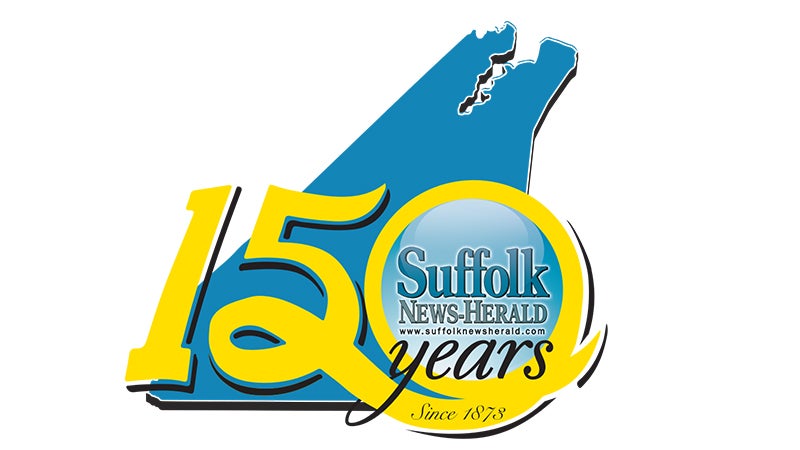Column – Moving forward
Published 4:59 pm Tuesday, July 18, 2023
|
Getting your Trinity Audio player ready...
|
The new city of Suffolk was now Virginia’s largest, so Chesapeake had to revise its claim as the state’s largest. Chesapeake decided to stake its claim to the “finest city.”
War in Vietnam was officially over in March 1973. U.S. prisoners of war flew home for reunions with the families and friends they hadn’t seen for at least five years.
On April 4, 1973, America’s last known prisoner of the Vietnam War landed on U.S. soil and was given a roaring welcome by 600 people shouting “Aloha, welcome home.” Army Capt. Robert T. White, 32, landed at Hickam Air Force Base aboard a C141 Starlifter jet on which he was the only returning POW. He was the last of 597 prisoners released from Vietnamese prisons during the 67 days of “Operation Homecoming.”
In May 1973, due to conflict in the Middle East and a fuel embargo, the nation’s fuel crisis, with higher prices and declining supplies, was taking a marked turn for the worse. A gasoline rationing program was announced by Amoco Oil Co., the same day Cities Service Oil Co. instituted across-the-board price increases. Texaco, one of the nation’s largest petroleum refiners, predicted in Congressional testimony that there will be industry-wide gasoline “run-outs” by summer.
In August, international major wholesale beef suppliers in New York City followed a national trend and closed for the day because of a shortage of beef. Elsewhere, thousands of meat packers were out of work as the shortage spread across the country. Panicked buyers hoarded meat in home freezers, meat distributors reported they were sold out, butchers turned away customers — and even the White House was turned down by its beef supplier.
A price freeze was implemented. Dr. Reid Grigsby of Louisiana State University said there would be a shortage of meat until the price freeze on beef expired Sept. 12. He also predicted for two months after the freeze, the price of meat would increase rapidly. “I think you could pay a dollar and a half for a hamburger and be delighted to get it — and I mean a quarter pound of hamburger.”
The shortages continued into 1974. In January, President Richard Nixon signed a bill requiring all states, as a gasoline-saving measure, to reduce the maximum speed limit to 55 miles an hour, under threat of losing federal highway money. Nixon said that driving slower reduces the amount of gasoline and diesel fuel needed to keep the nation’s motor vehicles rolling.
Police reported in early February that they were looking for a car with aromatic exhaust smoke. Someone stole 60 gallons of gasoline at the Whidbey Island Naval Air Station, where officials recently ordered perfume mixed with the gasoline to make thieves easier to catch.
Even with shortages of gas to drive, in July 1973, the 5.4-mile northeast section of the Suffolk bypass opened.
In November 1973, Nansemond’s Mills Godwin won a marginal victory as the first Virginian ever to be elected to a second term as governor.
Suffolk was coming together as a city. In January 1974, a ceremony was held marking the merger of Nansemond and Suffolk. The new city’s future “rests on the twin pillars of jobs and education,” Governor-elect Mills E. Godwin Jr. told more than 200 Suffolk residents and visitors gathered to celebrate the merger of the two cities.
Nationally, the country was ripe with scandal. In May 1973, a front-page story declared, “President Nixon personally authorized FBI wiretaps on telephones of more than a dozen members of his National Security Council staff in 1969 in an effort to track down news leaks, the White House said today.”
Over a year later, on Aug. 8, 1974, Nixon resigned.
After being sworn in on Aug. 9, Gerald R. Ford said, “our long national nightmare of Watergate is over” and asked the nation to “let brotherly love come to our country.”
He pledged that as president he would be what he had always been — a plainspoken politician. “Our Constitution works,” he added. “Our great republic is a government of laws and not of men. Here the people rule. But there is a Higher Power, by whatever name we honor Him, who ordains not only righteousness but love, not only justice but mercy. As we bind up the internal wounds of Watergate, more painful and more poisonous than those of foreign wars, let us restore the Golden Rule to our political process, and let brotherly love purge our hearts of suspicion and hate.”




